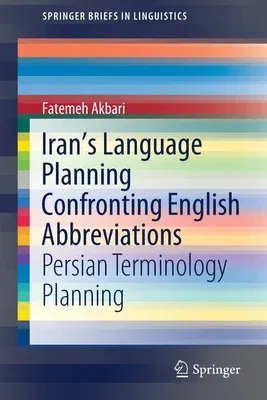Fatemeh Akbari
(Author)Iran's Language Planning Confronting English Abbreviations: Persian Terminology Planning (2020)Paperback - 2020, 2 January 2020

Qty
1
Turbo
Ships in 2 - 3 days
In Stock
Free Delivery
Cash on Delivery
15 Days
Free Returns
Secure Checkout
Part of Series
Springerbriefs in Linguistics
Print Length
116 pages
Language
English
Publisher
Springer
Date Published
2 Jan 2020
ISBN-10
3030353826
ISBN-13
9783030353827
Description
Product Details
Author:
Book Edition:
2020
Book Format:
Paperback
Country of Origin:
NL
Date Published:
2 January 2020
Dimensions:
23.39 x
15.6 x
0.74 cm
ISBN-10:
3030353826
ISBN-13:
9783030353827
Language:
English
Location:
Cham
Pages:
116
Publisher:
Weight:
199.58 gm

